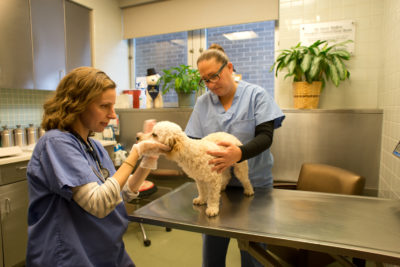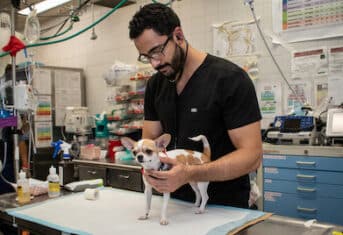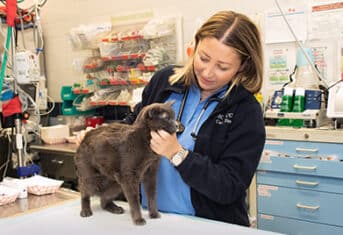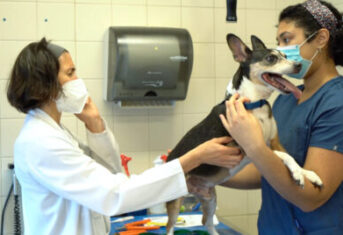Poison Prevention Week 2020: What to Do to Protect your Pet

Poison Prevention Week 2020: What to Do to Protect your Pet
The third week of March is Poison Prevention Week. It’s held annually to raise awareness of poisonings with the hope that awareness will result in prevention. All family members, pets included are at risk for poisoning. This blog post will highlight some of the important facts you need to know about poisoning in pets and how to protect your fur babies.
Start at the ER
When it comes to poisoning, the ER is the best place for your pet. In a previous blog post, I outlined reasons to go to the animal ER and poison is near the top of the list. The Animal Medical Center’s ER is a Level 1 certified veterinary trauma center, staffed by board certified emergency and critical care specialists.
These veterinarians are experts at handling poisonings, thanks to their training and their experience managing this type of patient. For example, on a single night in 2013, AMC’s ER doctors treated pets for intoxication by chocolate, Naprosyn®, marijuana and xylitol. A two-month survey of overnight admissions to AMC’s ER confirmed the top poisons in dogs were chocolate, various medications and marijuana. During that same two-month period, the top cat poison was ingestion of lilies.
Identifying New Poisons
Predicting the next new pet poison is near impossible. The legalization of recreational marijuana resulted in an unexpected spike of marijuana intoxication in dogs. Being more discriminate eaters than dogs, cats are much less prone to ingesting something poisonous. Cats tend to be lickers, not eaters. A couple of years ago reports surfaced of cats getting sick from licking Himalayan salt lamps. The cats licked the lamps enough to ingest a toxic level of salt. Play dough and paint balls can also lead to salt toxicity. Another unexpected toxin is nicotine – not just through secondhand smoke, but there are dogs who eat enough cigarette butts or vaping cartridges to make themselves sick.
Protecting your Pet
Because medication ingestion is the number one cause of calls to animal poison control, pet families can avoid a trip to the ER by following a few simple suggestions found in “Medication Safety for Pets”. And be sure to keep the pet poison control phone numbers readily available so you don’t waste time finding them in an emergency.
ASPCA Animal Poison Control
888-426-4435
Pet Poison Hotline
800-213-6680

































